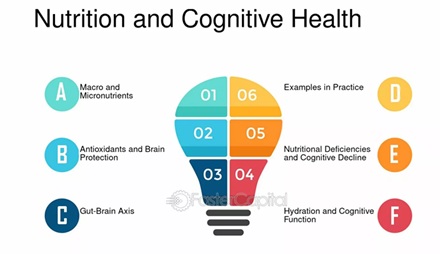(Prelims: Current Issues)
(Mains, General Studies Paper-2: Topics related to development and management of social sector/services related to health, education, human resources) |
Reference
The first 1,000 days of a child's life, i.e. from birth to about three years of age, determine his future physical, mental and social capabilities. During this time, the brain develops rapidly and nutrition lays its foundation. If there is a lack of nutrition and cognitive activities during this period, then the child's educational, social and mental capabilities can be permanently affected.

Recent Issues
- Malnutrition and nutritional imbalance are still a big challenge in India. 30% of children are born with low birth weight.
- Lack of nutrition in the first three years of life can cause permanent developmental damage.
- The effect of nutrition programs alone was found to be limited; a combination of both nutrition and cognitive stimulation is more effective.
Important facts
- About 80% of the brain develops from birth to 2 years.
- During this time, connections (synapses) between neurons are formed at the fastest rate.
- Due to neuroplasticity, the ability to learn is more permanent in the first three years.
- The stunting rate (reduction in height in proportion to age) in India is more than 35% in 2021.
Relation between nutrition and cognition
- The development of brain and cognitive abilities directly depends on nutrition.
- A study in Vellore, Tamil Nadu found that iron deficiency affects language and cognitive performance at the age of 5 years.
- Lack of nutrition affects the child's attention, memory, thinking and problem solving ability.
- Combination of nutrition and cognitive stimulation:
- 20-30% improvement in language development
- Up to 25% improvement in memory and learning ability
- Adequate nutrition and mental stimulation also make children socially, emotionally and behaviorally competent.
- Protein, iron, zinc, vitamin B12 and omega-3 fatty acids are essential for brain development.
- Timely vaccination, clean water and sanitation also affect cognitive development.
Child Care Programmes in India
- Integrated Child Development Services (ICDS):
- 14 lakh Anganwadi centres and workers
- Focus on both nutrition and early education
- ‘Poshan Bhi Padhai Bhi’ scheme:
- Combination of nutrition and cognitive development
- NavChetana - Early Childhood Sensitisation Framework:
- 140 age-specific activities for children from birth to 3 years
- Simple, play-based activities for parents and Anganwadi workers
- Followable at home, makes learning fun
Gain areas in India
- Lack of coverage: services not reaching all targeted children
- Urban and semi-urban areas: poor quality of services
- Lack of technology access: limited data-driven monitoring and evaluation
- Lack of crèche facilities: barrier for working mothers
Requirements
- Technological enhancements (e.g. mobile apps, data collection) can increase the effectiveness of services
- Creches and care facilities are essential for women's empowerment and participation in employment.
- Investment in early years will lead to long-term improvements in human capital, which will also impact economic growth.
Concerns
- If nutrition and cognitive development are not addressed, academic and mental performance will suffer.
- Rapid technological advancement and automation will reduce employment of low-skilled workers.
- Social inequality and poverty are not providing equal opportunities to all children.
Key Government Initiatives
- ICDS and ‘Poshan Bhi Padhai Bhi’
- Navchetna Framework – Play-based cognitive activities at home
- Expansion of Anganwadi and Creche services
- Technology-based monitoring – Mobile apps, data collection, performance evaluation
- Training active mothers and community – awareness on nutrition and cognitive development
Way Forward
- Giving equal importance to nutrition and cognitive stimulation
- Enhancing quality of services through technological innovation and data-driven evaluation
- Empowering parents and community to ensure early stimulation at home too
- Involving women in the workforce and adopting different models of creches/care facilities
- Continuous evaluation of policy and programmes to ensure impact of investments
Conclusion
‘We are what we eat and think’. Development lost in the early years never fully returns. Hence, investments in child nutrition and cognitive development are essential not just for health, but also for social and economic progress.



